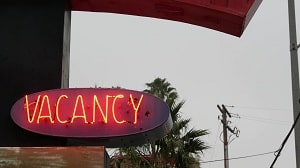
Business Advisory Services
Everything you need to help you launch your new business entity from business entity selection to multiple-entity business structures.
Table Of Contents

Posted Sunday, December 15, 2025
This is a mini series with a total of five sections- the tease or intro, and the four sections describing each scenario. Before we get into that, here are two pieces of verbiage from IRS Publication 527 Residential Rental Property–
Idle Property
Continue to claim a deduction for depreciation on property used in your rental activity even if it is temporarily idle (not in use). For example, if you must make repairs after a tenant moves out, you still depreciate the rental property during the time it isn’t available for rentVacant rental property.
If you hold property for rental purposes, you may be able to deduct your ordinary and necessary expenses (including depreciation) for managing, conserving, or maintaining the property while the property is vacant. However, you can’t deduct any loss of rental income for the period the property is vacant.
We’ll introduce another term that is not found in tax code or publications but will prove to be useful-
Temporarily Offline
As long as you can prove a renovation is temporary and you intend to rent it again (as seen in Subt v. Commissioner Tax Court Memo 1991-429 in a following section but you need to wait for it), the property is not considered a “permanently withdrawn from use” as described in Treasury Regulations Section 1.168(i)-8(b)(2).
As such, it remains “Placed in Service,” allowing you to continue depreciating the building structure. “Held for the production of income” allows you to continue deducting operating expenses even though it isn’t currently ready and available for a tenant or guest. Yes, you need both to fully deduct both depreciation and expenses.
How is idle different than vacant? The IRS publication is terribly vague (shocker, we know) and perhaps duplicative suggesting that idle and vacant are synonymous. Practically they are, but technically they are not.
To be fair, the idle property blurb is under a section on depreciation whereas vacant rental property is under a section on types of deductible rental property expenses. Also, idle property is not limited to rental properties- it can be applied to any asset associated with a business activity including real estate. Your machinery cannot be vacant but it can be idle.
Vacant, idle, temporarily offline and blah blah blah all seem to be intermixed and confusing. You are correct, and we will attempt to uncomplicate the confusing. Why do you care as a rental property owner? Let’s explore four scenarios-
